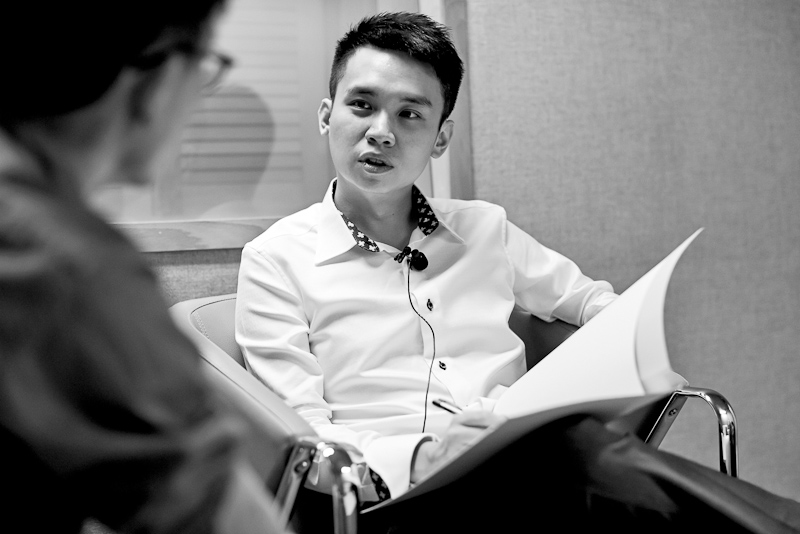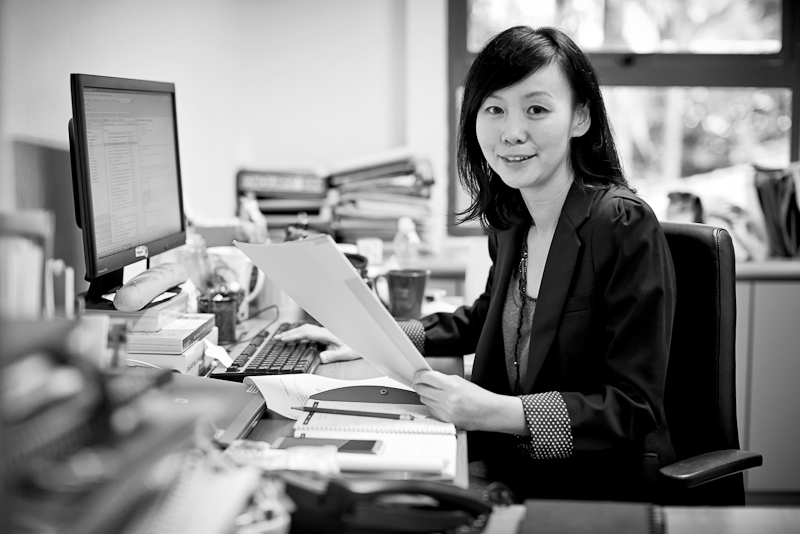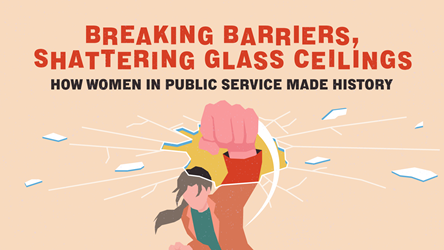An Intimate Record Of History
.jpg)
On February 13, 1942, a fierce battle – known as the Battle of Bukit Chandu (Opium Hill) – began in Pasir Panjang. For two days, the outnumbered soldiers of the First and Second Battalion Malay Regiment struggled against the better-equipped Japanese troops.
Mr Ujang Mormin, now 92, was then a young soldier guarding the mortars some distance away from the frontline. As the death count rose, Private Ujang began to feel helpless and angry. From his vantage point, he could also see Japanese fighter planes bombard British ships in the harbour, as anti-aircraft guns fired back in vain.
Mr Ujang shared this eyewitness account with the National Archives of Singapore’s Oral History Centre when he and another Regiment veteran, both living in Malaysia, visited Singapore in March.
“I was very surprised that he was very sharp … in his recollections of what happened in 1941, 1942,” said Oral History Specialist Nur Azlin Salem, who interviewed Mr Ujang in Malay. “I felt very privileged to be able to dig out information – to be the one to ask him and add on to our collection of our nation’s memories.
“Towards the end, he actually cried because I asked him … ‘What was your mother’s reaction when she saw you [return home safely]?’ He said she was happy; ‘I can’t believe I’m home after all that I went through.’”

Not in the history books
Ms Azlin is one of six oral history specialists who collect memories for a living. These intimate, first-hand recollections – transcribed, digitised and uploaded to the Archives’ Web portal by other colleagues – offer rich, and sometimes more nuanced accounts of the past, as compared to official records.
Not everyone interviewed, for instance, had the same experience with the Japanese during the Second World War. In his interviews, a civilian, Mr Tobias Pereira, shared several encounters when Japanese officers had treated him respectfully.
Oral records are also insightful where there is a dearth of other documentation, for example, in understanding what a gravedigger does or a mid-wife’s memories of delivering babies in remote villages.
These records have proven to be useful to historians, writers, researchers and students. In the book Reflections and Interpretations, the Archives’ former deputy director Tan Beng Luan writes that the popular 1982 Chinese drama serial The Awakening was based on a mixture of written national history and “community history” obtained from oral history interviews of a Duxton Road resident.
While these personal stories add to Singapore’s past, Ms Julia Chee, the Centre’s Deputy Director, cautioned that “oral history … are memories. You [the researcher or student] have to use your own judgement as well as other research to decide if what has been said by the individual is accurate because these are just their personal reflections.”

Documenting the Public Service’s journey
The National Archives began recording oral history in 1979 with the formation of the then Oral History Unit. Its first two projects were on the pioneers and political leaders of Singapore. Now, there are 29 projects including memories of the Japanese Occupation, vanishing trades and the medical sector.
One of the longest ongoing projects is about the Public Service. “This project aims to add on to the already rich collection we have from the … British and post-independence years. The special focus [now] is on the professionalisation of the Service,” said Mr Adrian Tan, the specialist in charge.
Mr Tan researches and identifies key persons who can throw light on the administrative reforms of the 1980s, explain the rationale behind the landmark policies of the ’90s, and outline how the Service responded to challenges and uncertainties faced in the 2000s.
“We think these are things that should be part of national posterity and [we need to] capture the learning lessons within,” he said.
Even though interviewees are selected to discuss specific topics, their interviews are wide-ranging. Oral history specialists establish rapport first, so as to tease out more details of interviewees’ life stories and anecdotes.
“We would always encourage interviewees to share their personal [stories] … [so] you then understand why the person came to be the person he is today, why he made certain decisions in his career, based on certain experiences [in] his childhood,” explained Mr Tan.
As a result, most interviews take several sessions (sometimes over a span of years) to complete. The longest interview, so far, has been 98 hours with artiste Abigail Chay for a project on the performing arts.

Trivia

- 1st interview:
December 1979 with Mr Toh Mah Keong, former Chief Planning Officer at People’s Association - Longest interview done:
98 hours Abigail Chay under the performing arts project (recordings being processed) - In total:
More than 4,000 interviews spanning 21,000 hours

Working with expert partners
With a diverse range of subjects covered, the Centre sometimes outsources the work to people with expert knowledge. It is also encouraging organisations to start their own oral history projects. Once done, the interviews are deposited with the Centre for preservation, documentation and public dissemination.
The Academy of Law is one such example. “They have their volunteers – legal officers and even judges – who take time out to capture some of the stories, like with the former Chief Justice and those who have been in the legal profession for many years. If we went in, even with the kind of research we would have to do, we may not have been able to capture the full legal history as we don’t know it,” explained Ms Chee.
Mr Tan acknowledged that it’s a challenge for volunteers who have their day jobs. “[But] if you enjoy meeting people … and have the genuine interest, it’s so insightful. I’m especially privileged to speak with so many senior people… the very ones who made decisions previously… I feel I have benefited so much from their wisdom.”

Recording for the future
For Ms Azlin – who’s had many memorable interviews in her five years at the Centre – the meeting with Mr Ujang certainly left her in awe.
The former history teacher, who used to teach about the heroic efforts of Lieutenant Adnan bin Saidi in the Battle of Bukit Chandu (Opium Hill), never expected to meet someone from the Malay Regiment.
“It was wow. This is someone still alive, part of history, and still alive – the Malay word for it is ‘kagum’ (goosebumps),” she said. “You have a living person who is able to tell us more beyond what Lt Adnan did.”
Now that she’s collected his memories, she hopes they will one day be written into the history textbooks. At the very least, students and teachers will soon be able to listen to Mr Ujang’s accounts when they are uploaded onto Archives Online.
The oral history specialist – who can spend years doggedly persuading people to share their life stories – has on her wish list of interviewees, former national footballer Fandi Ahmad, former Member of Parliament Yatiman Yusoff and also Puan Noor Aishah, wife of former President Yusof Ishak.
“Today’s generation don’t listen enough to the elder, and they’re very quick to say, ‘You don’t know anything, we’re of a different generation’,” she said. “But if you do listen, there’s a lot to learn from them.”
Why Zubir Said Drive and not Zubir Said Lane?
“I linked up with Dr Rohanna (Zubir Said’s daughter)… She was so happy that her father’s name will be used, she felt that Zubir Said Drive was appropriate. One, her father personally enjoyed driving around in a car. Two, she also talked about her father, a very driven man…”
– From an oral history interview with Mrs Rebecca Chew, Founding Principal of the School of the Arts (SOTA), on the naming of the address for SOTA.
Medical
A midwife recounts how she used a bicycle pump, instead of forceps, to deliver a baby in the 1970s. Listen to the transcript.
Prisoners of War
A nurse, who was made a prisoner of war in the 1940s, describes how a Japanese soldier used a bayonet to kill a baby. Listen to the transcript.
- POSTED ON
Jul 2, 2014
- TEXT BY
Bridgette See
- PHOTOS BY
Justin Loh









